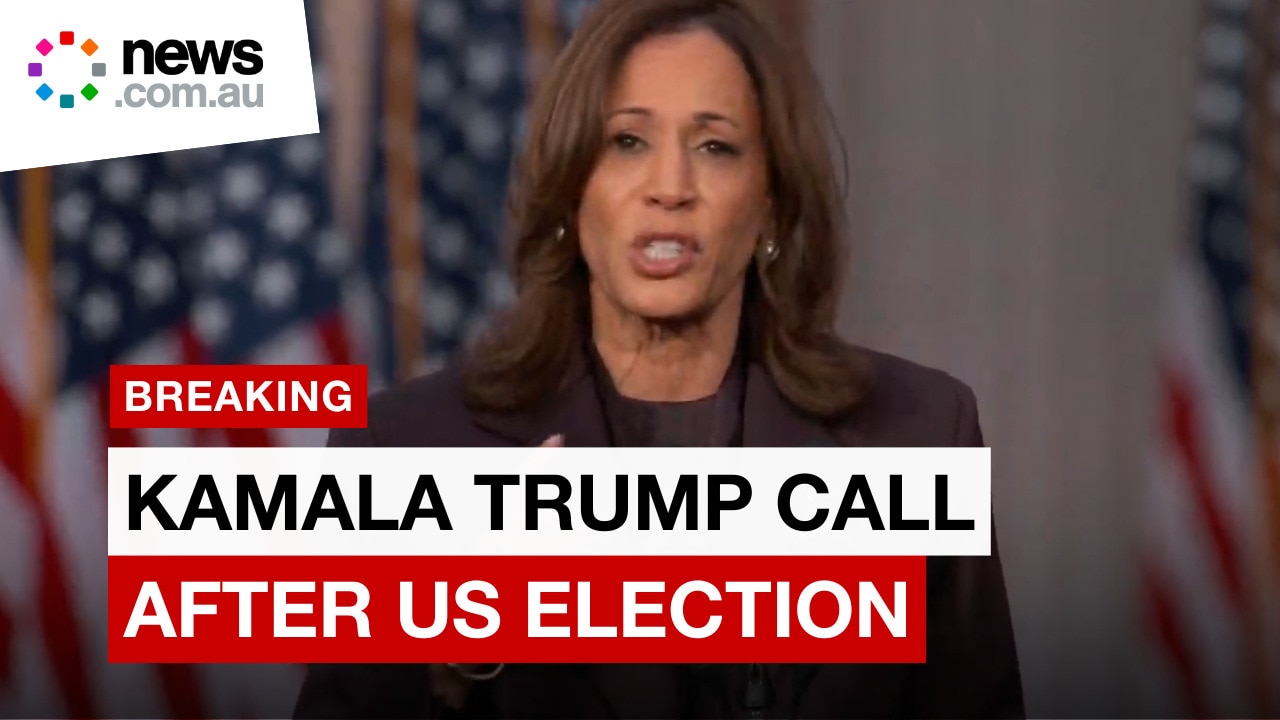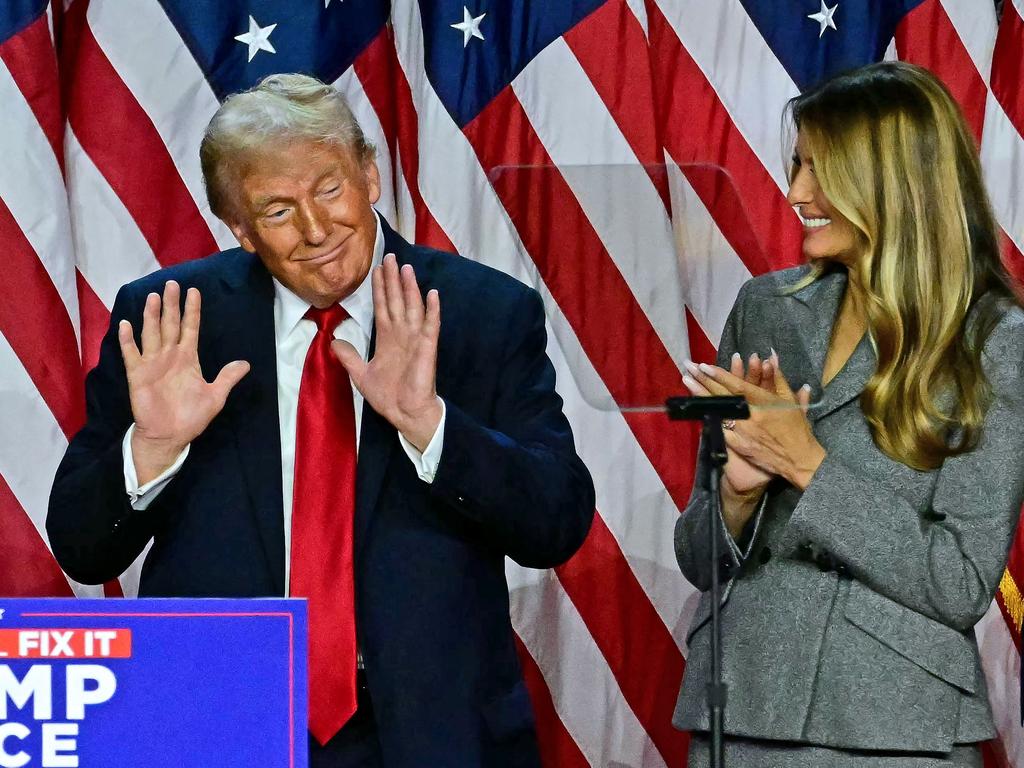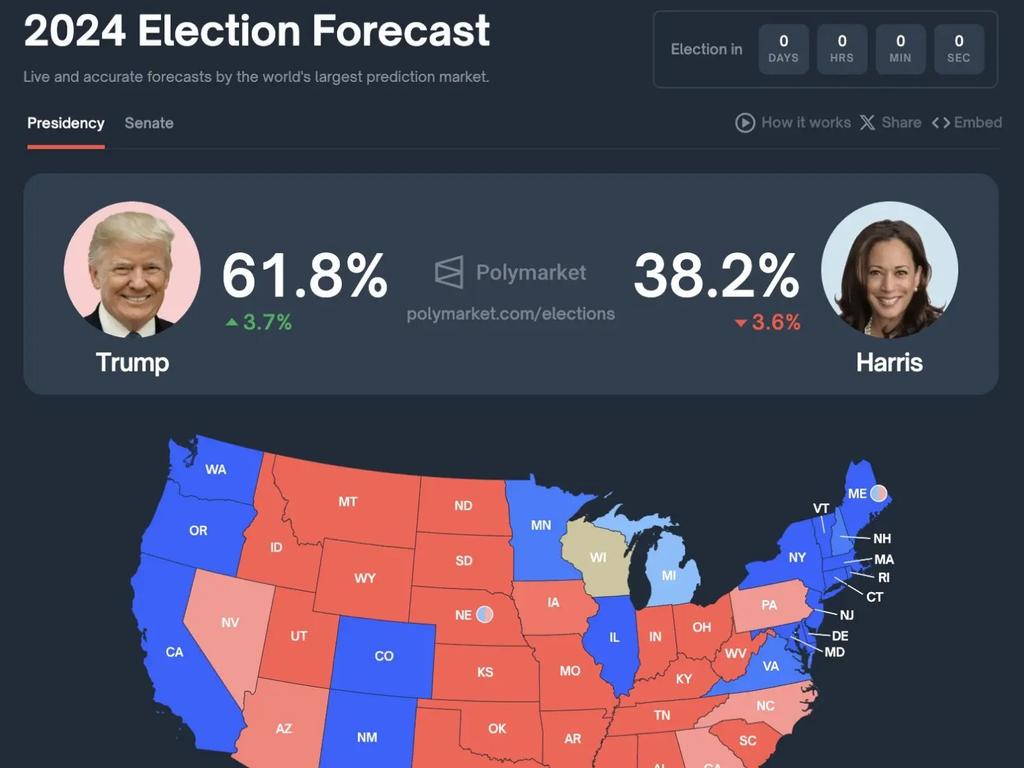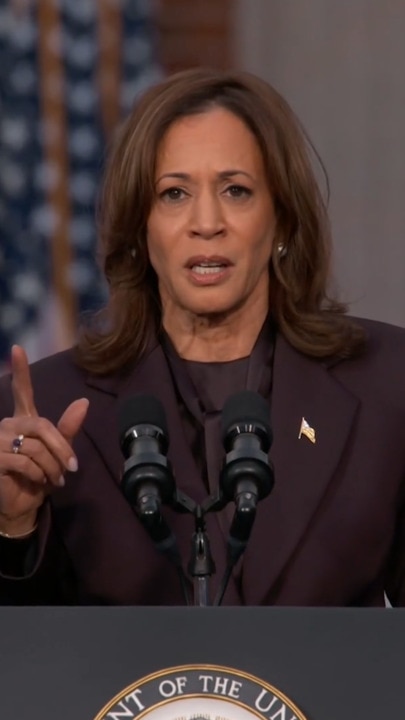Punter wins $73m betting on Donald Trump to win election
A Polymarket “whale” who bet big that Donald Trump would win the US presidential election has raked in $73 million in profits.

A French “whale” who bet $45 million ($US30 million) on a Trump White House win via Polymarket has raked in $73 million ($US48 million) in profits on the wager, according to the crypto-based betting platform.
The anonymous bettor, who goes by Théo, controlled four separate accounts on the platform that each made wagers on Donald Trump winning the Electoral College and the popular vote, along with some money on Republican candidates in swing states.
In all, Polymarket gamblers spent more than $5.6 billion ($US3.7 billion) placing bets on the presidential election.

The former president defeated Vice President Kamala Harris to become the 47th president – catapulting Théo and his massive gains to the top of Polymarket’s all-time winnings board.
The Theo4 Polymarket account is sitting on about $33 million ($US22 million) in profits, while the trader’s three other accounts – Fredi9999, PrincessCaro and Michie – saw a combined $39 million ($US26 million).
Media outlets have questioned the French trader’s motives in placing such large amounts of money on Trump, but Théo said the Polymarket moves were simply good bets.
“My intent is just making money,” he told The Wall Street Journal during a Zoom call last week.
“I have absolutely no political agenda,” the trader wrote in a follow-up email to the paper.

The trader’s risky bets paid off big time as the mysterious figure held onto about $4.5 million ($US3 million) in unrealised losses the day before the election while polls continued to predict a neck-and-neck race.
Polymarket, along with other newly popular election betting platforms like Kalshi, is now trying to position itself as the more accurate race predictor.
“Last night, Polymarket proved the wisdom of markets over the polls, the media, and the pundits,” the company said in a statement on X.
“Polymarket consistently and accurately forecasted outcomes well ahead of all three, demonstrating the power of high volume, deeply liquid prediction markets like those pioneered by Polymarket.”
The morning before election day, the betting site said Mr Trump had a 58.6 per cent chance of winning the presidency while Ms Harris’ odds stood at 41.4 per cent, according to the Polymarket site.
Polymarket is a relatively new platform, having launched just four years ago.
But interest in betting markets has surged, especially after Kalshi – which is only available to bettors in the US – was cleared in October to list election contracts. Polymarket, meanwhile, is not available in the US.

Those who believe betting sites are the next big polling tool argue the markets react faster to changes in sentiment and keep voters engaged.
“That’s a good thing for democracy,” John Phillips, co-founder and CEO of the exchange PredictIt, told The Independent. “People who might be disengaged become engaged.”
But as these websites have gained popularity, they have also endured increased scepticism and scrutiny.
A Bloomberg News report revealed that Polymarket’s senior director of growth, Armand Saramout, had paid US-based social media influencers to promote its website – even though federal regulators have banned Americans from placing bets on the platform.
“We’ve reached out to influencers on both sides of the aisle to promote our data and drive traffic and eyeballs to polymarket.com, where 99 per cent of visitors consume news and never place a trade,” a Polymarket spokesman told Bloomberg News.
This story was published by the New York Post and was reproduced with permission





